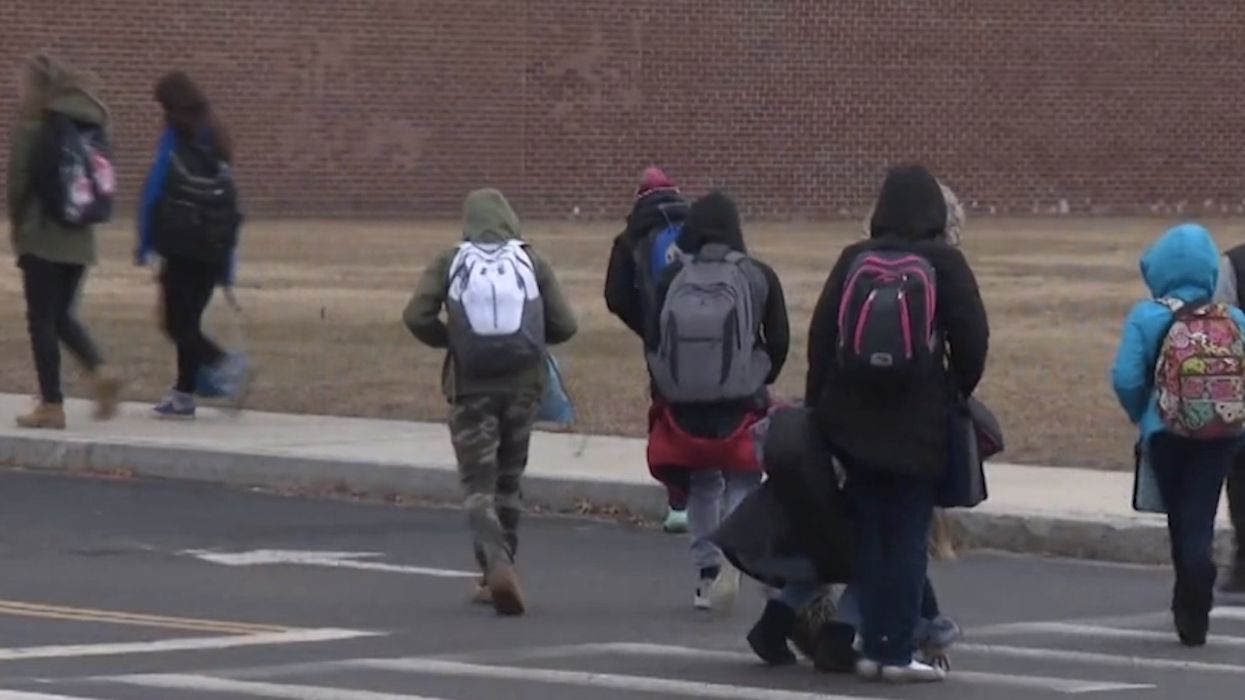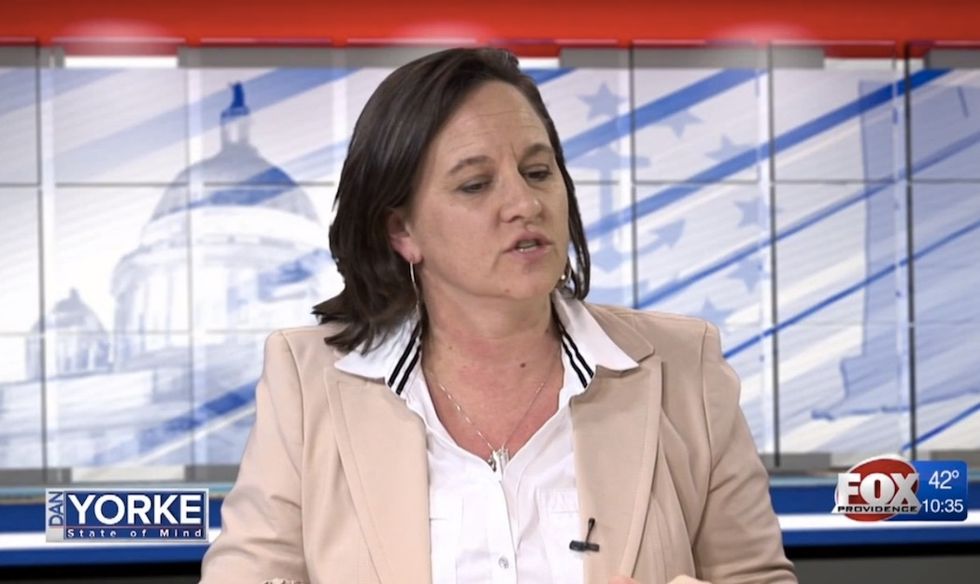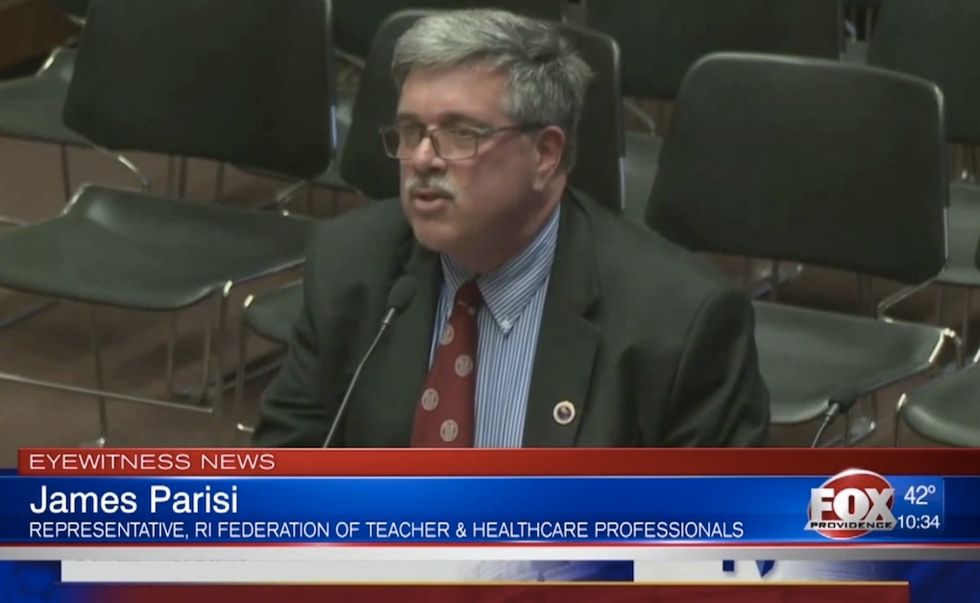
Image source: WPRI-TV video screenshot

'What about store managers, athletic coaches, clergy, and volunteers in community organizations?'
Rhode Island's two teachers' unions and the American Civil Liberties Union affiliate in the state are objecting to a bill that would criminalize sex between school employees and students younger than 18 years old, the Providence Journal reported.
Those objecting to the bill have said it's wrong to single out teachers and other school employees, the Journal said, adding that Rhode Island is one of about 30 states where the age of consent is 16 years old.
Democratic state Rep. Alex Marszalkowski sponsored the bill that says any school employee — including bus drivers, vendors, and school volunteers with supervisory authority — would be guilty of third-degree sexual assault if they have sex with students between the ages of 14 and 18, the paper reported.
Existing state law says no crime has been committed if a teacher has sex with a student who is 16 or 17 years old unless force or coercion is involved, WPRI-TV reported. State law also says those who have sex with children younger than 14 are guilty of first-degree child molestation sexual assault, the Journal added.
More from the paper:
Erika Sanzi, an education advocate and blogger, said she asked her state representative to submit the bill after a previous bill was described as being too broad. That legislation would have made it a crime for anyone with custodial responsibility to have sex with someone between the ages of 14 and 18.
Marszalkowski decided to narrow the language after Sanzi described to him that, in several states, it is legal for a teacher to have sex with a student once that individual turns 16.
"What we're asking is that we protect students from all people who work with them in school," Sanzi testified to the House Judiciary Committee April 2, the Journal reported.
"The deterrent is, yes, they can be fired," she added, according to the paper, "but that means they can jump to anywhere else in the country and get another job preying on kids."
"All personnel records are confidential, so when my kid's teacher is fired for having sex with a student, I don't get to know about that," Sanzi said during a radio program, WPRI said. "If they don't lose their state license they can get a job in another district. And if they do lose their state license, they can go to any other state and do the same thing."

James Parisi, a lobbyist for the Rhode Island Federation of Teachers, said his union objects to the bill because it ignores adults in other professions who supervise those under the age of 18, the Journal noted.
"You should include all the adults who have employment or other types of authority over 15-, 16- and 17-year-olds," he wrote, according to the paper. "For example, why is a legislator having sexual relations with a page not included in the bill? What about store managers, athletic coaches, clergy, and volunteers in community organizations?"

Robert Walsh, executive director of the National Education Association Rhode Island, told the Journal that it's "patently ridiculous for anyone to imply that our organization, or any individual teacher, would condone any inappropriate relationship between a teacher and his or her students. We do not believe that this obvious standard needs legislation to back it up and agree with the ACLU's objections to several other technical flaws in the actual proposed legislation."
The ACLU's Rhode Island affiliate wrote that "singling out teachers, school bus drivers, etc., in this way is arbitrary and capricious," the Journal reported, adding that the ACLU also is concerned about school volunteers feeling the brunt of the bill, as coaches could be close in age to students
"While one may disagree whether this type of 'Romeo and Juliet' conduct is appropriate ... it should not be a felony," the ACLU added, the paper said.
Marszalkowski told the Journal the bill isn't meant to single out teachers, but rather it's aimed at all school employees since schools are the one place where children are legally required to attend.
"I welcome any criticism," he added to the paper. "If there is a way to amend it so it's more broadly defined but passes constitutional muster, I'm willing to do it."